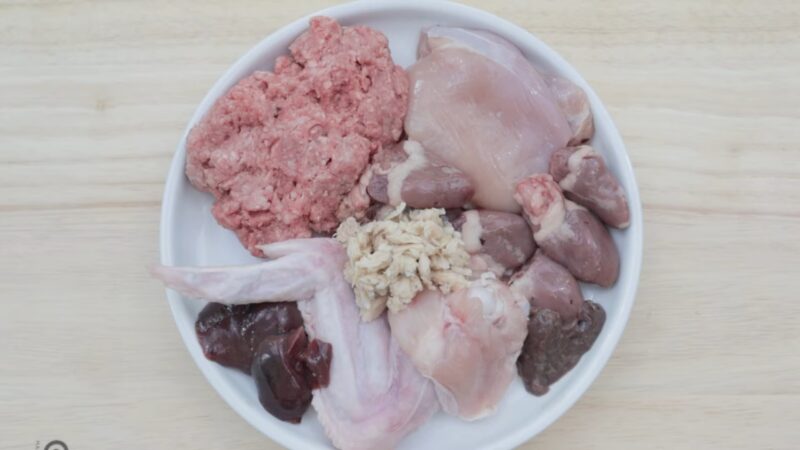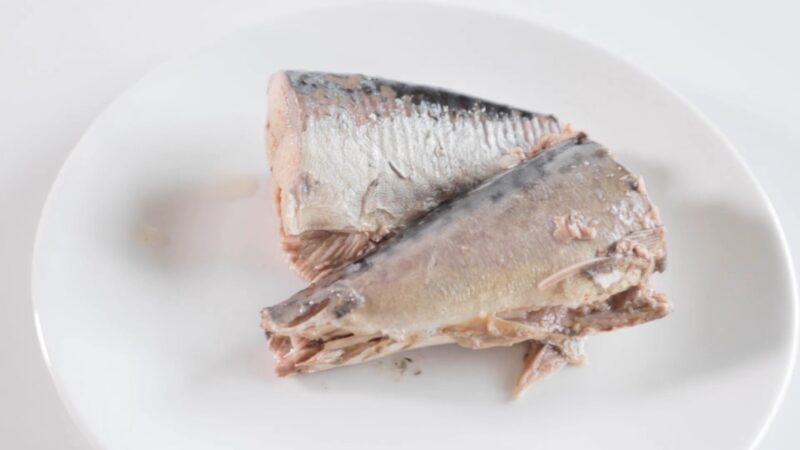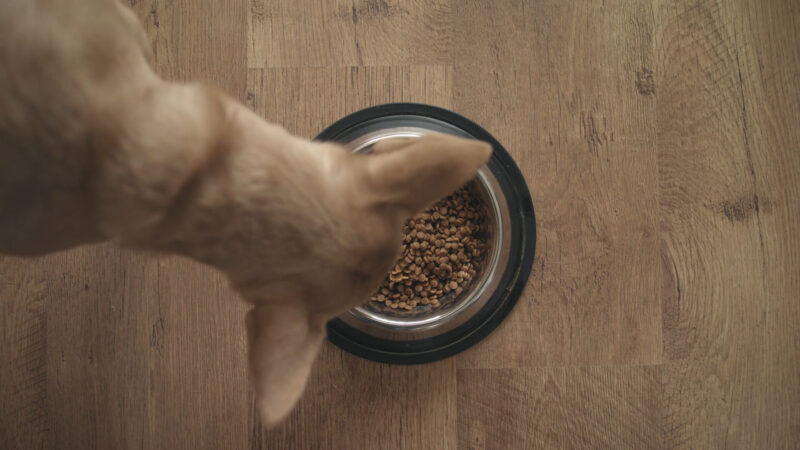Many pet owners may not realize that their dog’s diet might be lacking essential nutrients. Proteins, fats, carbohydrates, vitamins, and minerals each play a vital role in maintaining your dog’s health.
Proteins help build and repair tissues, fats provide energy and support brain development, and carbohydrates are necessary for quick energy. Vitamins and minerals are indispensable for immune function, bone health, and many metabolic processes.
To ensure your pet receives the right balance of nutrients, it’s important to choose meals formulated specifically for their age, size, and activity level.
There are many quality dog food options available that are designed to meet all essential dietary needs – whether you’re feeding a growing puppy, an active adult, or a senior dog with specific requirements.
This guide will explore the essential nutrients your dog needs, sources for these nutrients, and how to ensure your pet’s diet is complete and balanced.
Proteins

Proteins are crucial for your dog’s health. They help build and repair tissues, support muscle strength, and maintain a healthy coat and immune system. Proteins consist of amino acids. Dogs need 10 essential amino acids from their diet because their bodies cannot produce them.
The 10 essential amino acids for dogs are:
- Arginine: Supports immune function and hormone secretion.
- Histidine: Important for growth and tissue repair.
- Isoleucine: Helps with energy regulation and immune function.
- Leucine: Promotes muscle recovery and growth.
- Lysine: Essential for protein synthesis and hormone production.
- Methionine: Supports metabolism and detoxification.
- Phenylalanine: Precursor for neurotransmitters.
- Threonine: Important for collagen and elastin production.
- Tryptophan: Precursor for serotonin, influencing mood and sleep.
- Valine: Supports muscle metabolism and tissue repair.
Sources of Protein
High-quality protein sources include meat, poultry, fish, and eggs. These foods provide the necessary amino acids in an easily digestible form. For instance, chicken and beef are rich in essential amino acids, while fish provides omega-3 fatty acids along with protein.
Function
Proteins are involved in creating enzymes and hormones, maintaining pH balance, and supporting overall body function. Adequate protein intake ensures strong muscles and effective body repair mechanisms. Proteins also play a role in immune function and cellular repair, making them indispensable for your dog’s health.
Life Stage Requirements
- Puppies: Need more protein to support their rapid growth and development. A diet with around 22-32% protein is recommended.
- Adult Dogs: Require protein to maintain muscle mass and support normal activity levels. A diet with about 18-25% protein is ideal.
- Senior Dogs: Benefit from easily digestible proteins to support muscle maintenance and overall health. Protein levels should be maintained, but the focus should be on high-quality sources to avoid kidney strain.
Signs of Protein Deficiency

- Poor coat quality
- Muscle wasting
- Slow growth in puppies
- Weak immune response
- General lethargy
Fats
They provide a concentrated source of energy, support cell structure, and contribute to the absorption of fat-soluble vitamins (A, D, E, K). Fats also play a significant role in maintaining healthy skin and a shiny coat.
Dogs require essential fatty acids (EFAs) from their diet, as they cannot produce them. The primary EFAs are Omega-3 and Omega-6 fatty acids.

Omega-3 Fatty Acids
- Function: Reduce inflammation, support brain development, and maintain cardiovascular health.
- Sources: Fish oil (salmon, mackerel), flaxseed oil, and chia seeds.
Omega-6 Fatty Acids
- Function: Promote skin and coat health, support reproductive health, and aid in overall growth.
- Sources: Chicken fat, sunflower oil, and safflower oil.
Function of Fats
Fats provide 9 calories per gram, making them a dense energy source compared to proteins and carbohydrates, which provide 4 calories per gram each. This energy is crucial for active and working dogs. Fats also contribute to the production of hormones and help in the structural integrity of cell membranes. They play a vital role in thermoregulation, protecting dogs from cold temperatures by providing an insulating layer.
Sources of Fat
High-quality fat sources in dog food include:
- Animal Fats: Chicken fat, beef fat.
- Fish Oils: Salmon oil, mackerel oil.
- Plant Oils: Flaxseed oil, sunflower oil, canola oil.
Life Stage Requirements
- Puppies: Require about 8-20% fat in their diet to support rapid growth and development.
- Adult Dogs: Typically need 5-15% fat to maintain energy levels and overall health.
- Senior Dogs: Should have a balanced fat intake to avoid obesity but still maintain coat and skin health. A moderate fat level of around 5-10% is recommended.
Signs of Fat Deficiency
- Dull, dry coat
- Skin problems such as flaking and itching
- Weight loss
- Low energy levels
Carbohydrates
While not essential for survival, they are beneficial, especially for pregnant and lactating dogs. Carbohydrates also contribute to digestive health through fiber content.
Function of Carbohydrates
Carbohydrates are broken down into sugars, which are used for immediate energy. They help sustain energy levels throughout the day. Additionally, carbohydrates support healthy digestion by providing dietary fiber, which aids in regular bowel movements and overall gut health.
Sources of Carbohydrates

Dogs can efficiently digest a variety of carbohydrates, as long as they are properly cooked or prepared. High-quality carbohydrate sources include:
- Grains: Brown rice, oatmeal, barley.
- Vegetables: Sweet potatoes, peas, carrots.
- Fruits: Apples, blueberries, bananas.
Types of Carbohydrates
Simple Carbohydrates
- Function: Provide immediate energy but can cause rapid spikes in blood sugar levels.
- Sources: Sugars are found in fruits and some vegetables.
Complex Carbohydrates
- Function: Provide sustained energy and include dietary fiber, which aids in digestion.
- Sources: Whole grains, legumes, and starchy vegetables like sweet potatoes.

Life Stage Requirements
- Puppies: Benefit from carbohydrates to support their high energy needs and rapid growth.
- Adult Dogs: Carbohydrates help maintain energy levels and digestive health. A balanced diet with about 30-70% carbohydrates is typical.
- Senior Dogs: Require easily digestible carbohydrates to maintain energy levels without putting undue stress on their digestive system.
Fiber and Digestive Health
Dietary fiber, a type of carbohydrate, is essential for maintaining a healthy digestive system. Fiber helps regulate bowel movements, prevents constipation, and can aid in weight management by promoting a feeling of fullness. There are two types of dietary fiber:
Soluble Fiber
Dissolves in water and forms a gel-like substance, which helps slow digestion and regulate blood sugar levels.
- Sources: Oats, apples, carrots.
Insoluble Fiber
Does not dissolve in water and adds bulk to the stool, aiding in regular bowel movements.
- Sources: Whole grains, vegetables, and seeds.
Signs of Carbohydrate Deficiency
- Low energy levels
- Poor digestive health
- Weight loss
Vitamins
They are involved in numerous processes such as immune function, bone health, and energy metabolism. Since dogs cannot synthesize all necessary vitamins on their own, these nutrients must come from their diet.
Types of Vitamins

Fat-Soluble Vitamins
- Vitamin A: Important for vision, immune function, and skin health. Sources include liver, fish oils, and carrots.
- Vitamin D: Essential for calcium and phosphorus absorption, supporting bone health. Sources include fish, liver, and egg yolks.
- Vitamin E: Acts as an antioxidant, protecting cells from damage. Sources include vegetable oils, nuts, and leafy greens.
- Vitamin K: Necessary for blood clotting. Sources include leafy greens, liver, and some vegetable oils.
Water-Soluble Vitamins
- Vitamin B Complex: Includes several B vitamins that support energy metabolism, nerve function, and red blood cell production.
-
- Vitamin B1 (Thiamine): Involved in energy metabolism. Sources include pork, whole grains, and seeds.
- Vitamin B2 (Riboflavin): Supports energy production and cellular function. Sources include dairy products, meat, and green vegetables.
- Vitamin B3 (Niacin): Helps in DNA repair and stress responses. Sources include meat, fish, and whole grains.
- Vitamin B5 (Pantothenic Acid): Essential for synthesizing coenzyme A. Sources include meat, dairy, and whole grains.
- Vitamin B6 (Pyridoxine): Important for protein metabolism and cognitive development. Sources include poultry, fish, and potatoes.
- Vitamin B7 (Biotin): Supports skin, coat health, and metabolism. Sources include eggs, liver, and vegetables.
- Vitamin B9 (Folate): Necessary for DNA synthesis and repair. Sources include leafy greens, legumes, and liver.
- Vitamin B12 (Cobalamin): Crucial for nerve function and red blood cell formation. Sources include meat, fish, and dairy products.
-
- Vitamin C: Although dogs can synthesize their own vitamin C, additional dietary sources can boost their immune system. Sources include fruits and vegetables.
Functions of Vitamins
Vitamins play a role in numerous biological processes, including:
- Immune Function: Vitamins A, C, and E support the immune system by protecting against infections and diseases.
- Bone Health: Vitamins D and K are critical for maintaining strong bones and teeth.
- Energy Metabolism: B vitamins are essential for converting food into energy and supporting metabolic processes.
- Antioxidant Protection: Vitamins C and E help neutralize free radicals, protecting cells from oxidative stress and damage.
Life Stage Requirements
- Puppies: Need a higher intake of vitamins to support rapid growth and development.
- Adult Dogs: Require vitamins to maintain optimal health and metabolic functions.
- Senior Dogs: Benefit from vitamins that support immune function and counteract the aging process.
Signs of Vitamin Deficiency
- Poor coat quality
- Weakness and lethargy
- Skin disorders
- Vision problems
- Poor immune response
Minerals
Essential for various physiological processes in dogs, including the maintenance of strong bones and teeth, nerve function, and the regulation of muscle contractions and metabolic activities. They are categorized into two main types: macrominerals and trace minerals.
Macrominerals
These are required in larger amounts and include:
Calcium

Vital for bone and teeth health, muscle function, and nerve signaling.
- Sources: Dairy products, bone meal, fish.
Phosphorus
Works closely with calcium to support bone health and energy production.
- Sources: Meat, fish, eggs.
Magnesium
Important for enzyme function, muscle health, and nerve function.
- Sources: Leafy greens, nuts, whole grains.

Potassium
Helps with muscle contractions and nerve impulses.
- Sources: Meat, fish, fruits (such as bananas), vegetables.
Sodium and Chloride
Maintain fluid balance and are essential for nerve function.
- Sources: Table salt, fish, eggs.
Sulfur
Important for certain amino acids and vitamins.
- Sources: Meat, fish, eggs.
Trace Minerals
These are required in smaller amounts but are still crucial:
Iron
Essential for oxygen transport in the blood.
- Sources: Red meat, liver, fish.
Zinc
Supports immune function, skin health, and wound healing.
- Sources: Meat, fish, whole grains.
Copper
Important for red blood cell production and iron absorption.
- Sources: Liver, seafood, nuts.
Manganese
Involved in bone formation and enzyme function.
- Sources: Whole grains, vegetables, legumes.
Iodine
Necessary for thyroid function.
- Sources: Fish, dairy products, iodized salt.
Selenium
Acts as an antioxidant, protecting cells from damage.
- Sources: Meat, fish, eggs.
Functions of Minerals
- Bone Health: Calcium and phosphorus are critical for maintaining strong bones and teeth. The right balance of these minerals is crucial; too much phosphorus can interfere with calcium absorption, leading to bone disorders.
- Enzyme Function: Many minerals act as cofactors for enzymes, supporting various metabolic processes.
- Nerve and Muscle Function: Sodium, potassium, and magnesium are essential for proper nerve transmission and muscle contraction.
- Fluid Balance: Sodium and chloride help maintain the body’s fluid balance, which is crucial for normal cellular function.
Life Stage Requirements
- Puppies: Need higher amounts of calcium and phosphorus to support rapid growth and bone development. A calcium-to-phosphorus ratio of about 1:1 to 1.5:1 is ideal.
- Adult Dogs: Require balanced mineral intake to maintain bone health and metabolic functions. The diet should be balanced to avoid deficiencies or excesses.
- Senior Dogs: May need adjusted mineral intake to prevent kidney strain and maintain bone density. Easily digestible sources are recommended to ensure proper absorption.
Signs of Mineral Deficiency
- Weak or brittle bones
- Poor coat quality
- Muscle weakness or cramps
- Anemia (iron deficiency)
- Slow growth in puppies
Don’t Forget the Proper Hydration

It makes up about 60-70% of an adult dog’s body weight and is crucial for digestion, nutrient absorption, and temperature regulation. Proper hydration is necessary to keep your dog healthy and active.
Daily Water Requirements For Dogs
Dogs need approximately one ounce of water per pound of body weight each day. For example, a 50-pound dog requires about 50 ounces (about 6.25 cups) of water daily. This requirement can increase based on factors like activity level, temperature, diet, and health conditions.
Signs of Dehydration
- Dry gums and nose
- Loss of skin elasticity
- Lethargy
- Sunken eyes
- Decreased appetite
Last Words
By providing a diet that includes high-quality sources of these nutrients, you can help your dog thrive. Always ensure they have access to fresh water and consult with a veterinarian or a veterinary nutritionist to tailor their diet to their specific needs. A well-balanced diet will keep your furry friend healthy, active, and happy.







